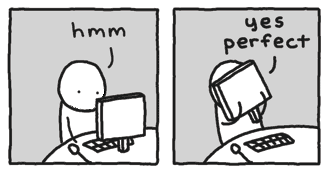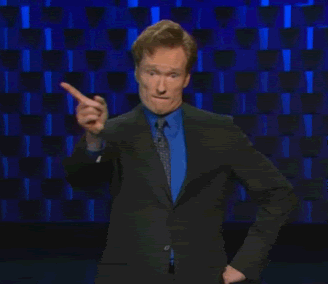In
high school, I wrote without any thought to editing. Using my father’s electric
typewriter (and I’m totally showing my age here), I wrote whatever popped into
my head. Well, let me clarify. I start with a story in mind then write what
comes naturally to me in connection to the story. Afterwards, horrible spelling
and wrong grammar notwithstanding, I’d bind my stories and bring them to school
for my classmates to read. No editing necessary.

Starting
my writing career this way helped and hindered me. It helped because today I’m
able to construct my novels a chapter at a time based on an overarching
storyline. I have a beginning and I have the end then I fill in the blanks in
the middle. This assures a tighter plotline. For me, anyway. It hindered
because I had no concept of editing whatsoever. This messes with the ego
because I automatically thought my work didn’t need changing. It’s not perfect,
but that’s how I intended to create it. Budding writers out there don’t start
out this way. *wags finger*
This
terrible mindset followed me well into my early twenties. I stood by my work
and hardly listened to anyone’s feedback. Maybe this is also because the
critique groups I did participate in would nitpick rather than give actual
constructive criticism. Oh, they thought they were being constructive. Hell, I thought
so too. It’s only now after working with a variety of editors that I can distinguish
between what is considered constructive (i.e. what will help improve the story)
versus your run of the mill nitpicking (i.e. the negative stuff).
For
some of you who might not know yet, I’m currently published by three different
publishers. This is no accident. I intentionally submitted to different
publishers because I wanted to learn more about my craft. Working with as many
editors as possible certainly helps.
Many
writers abhor the editing process for many different. I’ve seen many cry over
it. I understand it can be intimidating and that comments can be seen as
criticism of one’s work. I’ve come to believe that editing is the best part of
the process. It can be taxing, for sure. But it is also the most rewarding
because you already have something to work with.
Let
me elaborate.
When
writing, you’re forced to fill a blank page with words. Basically, you need to
translate what’s in your head onto paper. With editing, you already have
everything on paper, which takes the edge off. Now your job becomes improving
on what you already have. And the best thing about it is you have an editor who
helps guide you in the right direction.
For
my debut novel, Taste, the comments of my editor for the first two pages alone
were longer than the actual two pages. In fact, every sentence had multiple
comments attached to them. Here’s a picture of what I mean:
Looking
at this picture today doesn’t fail to bring out a cold sweat in me. How I
survived that initial editing process is beyond my reasoning skills. But I can
honestly say that my editor really helped make my writing better. Many readers
don’t get a glimpse of what goes on during the editing of a novel. The final
product you have in your hands is leaps and bounds beyond how it all started.
Now,
let me show you a picture of the first two pages of Savor, one of my latest
novels, during the editing stage:
Here
you no longer see any comments, just some tweaks by my editor on some of the
sentences. Taste is my debut and Savor is my sixth novel (fifth to be
published). The difference in editing is vastly obvious because each of the
editors I’ve worked with since my debut helped me hone my craft. If you want to
see the progression of the improvement in my writing based on editing, this is
how you should read my novels: start with Taste then move on to Reaping MeSoftly then to Til Death followed by Romancing the Bookworm before Unreap My Heart
and end with Savor. The dates of publishing vary, with Til Death being the most
recent release. But like what I mentioned above, Savor is my latest in terms of
what I’ve written and edited (it shows the most improvement).
With
each novel I write, I try my best not to make the same mistakes that my editors
have pointed out in previous novels. Of course, there’s no such thing as a
novel that doesn’t need editing. From experience, the process gets easier
because when you know better you do better (ßMaya Angelou quote).
So,
working with editors is actually awesome. They are there to support you as a
writer and help you improve your craft and nourish your talent. They are also
there to push your limits, demand better of you, and show you avenues into the
story you didn’t think possible during the writing process.
In
short, I’m an editing junkie. I want more. No. Need more.
Kate Evangelista
Taste, Crescent Moon Press, April 2012
Reaping Me Softly, Omnific Publishing, October 2012
Unreap My Heart, Omnific Publsihing, September 2013
Til Death, Entangled Teen, March 2014
Website
Goodreads
Bio:
When Kate Evangelista was told she had a knack for writing stories, she did the next best thing: entered medical school. After realizing she wasn't going to be the next Doogie Howser, M.D., Kate wandered into the Literature department of her university and never looked back. Today, she is in possession of a piece of paper that says to the world she owns a Literature degree. To make matters worse, she took Master's courses in creative writing. In the end, she realized to be a writer, none of what she had mattered. What really mattered? Writing. Plain and simple, honest to God, sitting in front of her computer, writing. Today, she lives in the Philippines and writes full-time.
If you want to know more about this quirky writer who loves romance and fantasy and everything in between, click here.






It's always fun to learn more about an author. I enjoy working with my editors, and my stories are always stronger for it. Thanks for sharing.
ReplyDelete